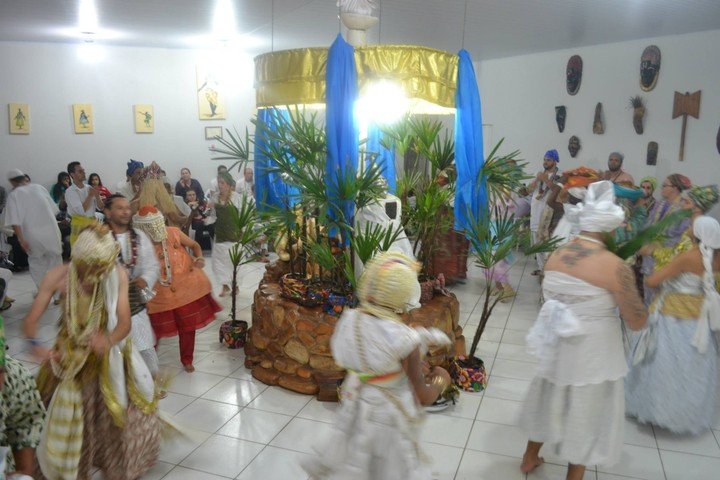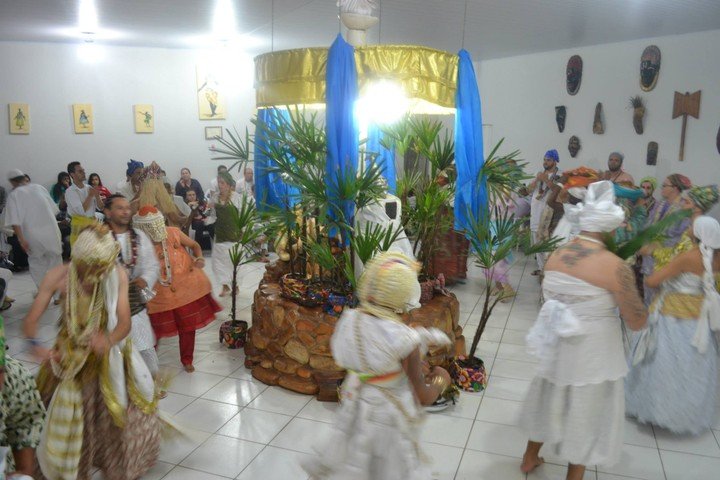Obaluaye Festival is celebrated in honor of Obaluaye (Lord of the Earth), an Orisha (deity) associated with infectious diseases and healing in the Yoruba religion. This festival is celebrated in West Africa (Nigeria, Benin), Latin American (notably Brazil), and the Caribbean (Cuba, Trinidad and Tobago). The Orisha, Obaluaye is also known as Omolu or Shopona. It is believed that Shopona has dominion over the Earth and infectious diseases (Smallpox, HIV, Epilepsy, and Leprosy), healing, illness, and epidemics. Obaluaye is venerated in Yoruba religion, Umbanda, Candomble, Santeria, Haitian Vodou, and Folk Catholicism.
BRIEF HISTORY
According to the recounted story, Shopona was said to be old and lame. He attended a celebration at the palace of Obatala (father of the deities). When Shopona tried to dance, he stumbled and fell. All the other deities laughed at him, and he, in turn, tried to infect them with smallpox. He was then stopped by Obatala who drove him into the bush. This became his abode as he lived as an outcast ever since.
OBALUAYE FESTIVAL IN BRAZIILIAN RELIGIONS

Yoruba religion is practiced in some parts of Brazil. The people worshipped the orishas among which is Obaluaye. In Santeria (an Afro-Caribbean based on Yoruba beliefs and traditions, with some Roman Catholic element added), Obaluaye is among the most popular Orisha. It is syncretized with St Lazans and regarded as particularly miraculous. The deity is publicly honored with a pilgrimage every December 17.
In Candomble (Afro-Brazilian religions and tradition, practiced mainly in Brazil by the ‘people of saint’), Obaluaye’s face is thought to be so scared by diseases and so terrifying that he appears covered with a raffia masquerade that covers his whole body. Obaluaye is also of significance in Umbanda (Afro-Brazilian religion that involves magic, sorcery, etc).
Obaluaye Festival was recently celebrated in some parts of Brazil. The people were dressed in Yoruba traditional attires while they worshipped the Orisha in their shrine. The event is colorful as they showcase the cultural ancestry of the Yoruba people of Ile-Ife. The worship of Obaluaye is widely associated with the earth itself, and his shrines are often separated from commonly traveled areas. His ritual tools include a broom for purification, a covered terracotta vessel, and abundant cowry.

